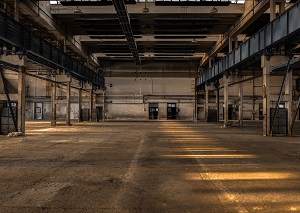Tips to Reduce Commercial and Industrial HVAC Energy Costs

9 Ways to Increase Indoor Air Quality During the Winter Months

4 Issues Make-Up Air Can Fix In Commercial and Industrial Facilities

While industry is essential to the U.S. economy, it is also a major consumer of energy. When energy is lost due to industrial or commercial HVAC inefficiency, it can result in significant loss of money. Titan-Air Lake Park Ind. 6
Here are two tips to improve the efficiency of industrial and commercial HVAC systems and substantially reduce high energy costs. Even small improvements in efficiency can yield large energy savings while at the same time, lessening industry’s carbon footprint.
#1 Ensure ventilation is adequate
Ventilation is the process (natural or mechanical) that either supplies or removes air from a space. Proper ventilation is important to running an energy-efficient operation. Improper ventilation can cost commercial or industrial sites thousands of dollars per year in wasted or lost energy.
In addition to higher energy bills, poor ventilation can lead to a host of other problems including:
- Buildup of unhealthy contaminants such as smoke, dirt and fumes.
- Mold growth that can cause health problems and/or structural damage in the building.
- Difficulty opening doors and equipment.
To save energy costs, be sure to:
- Shut off unneeded exhaust fans and reduce use where possible.
- Seal ducts that run through unconditioned space.
- Keep doors closed when air conditioning is running.
- Properly insulate walls and ceilings.
- Insulate air ducts, chilled water, hot water and steam pipes.
- Check for damper leakage/ensure tight seals.
Ideally, intake and exhaust air in a commercial or industrial building will remain balanced as specified based on the building’s intended use. Generally speaking, a slight positive pressure is desired as it will keep cold drafts from entering a building. However, in a case such as a natatorium (pool room), negative pressure is required to keep chlorine gas from exhausting into other parts of the building where it can cause damage to structural materials and be breathed in by building occupants.
In order to achieve the desired building pressure you may need to install makeup air units. Makeup air units are commonly found in applications such as restaurant kitchen ventilation systems, manufacturing facilities, and paint booths. They can help maintain a specific pressure and improve energy costs. In our Direct Fired vs. Indirect Fired Heaters blog, we compare the pros and cons of each heating system so you can make the best choice for your application.
#2 Ensure HVAC equipment is well maintained
All commercial and/or industrial equipment requires regularly scheduled maintenance to operate at full efficiency. HVAC systems are not an exception. Regular maintenance on an HVAC system (usually performed before each cooling and heating season) will improve efficiency and prolong its life. Here are several HVAC maintenance tips for commercial and industrial buildings to lower energy costs:
- Replace air filters regularly – Dirty filters cost more to use, overwork the equipment and result in lower indoor air quality and higher energy bills. HVAC filters should be looked at on a monthly basis, and either be cleaned or changed as needed. Replacing or cleaning dirty filters is one of the easiest ways to reduce wasted energy costs.
- Clean and adjust dampers – Improper damper operation is one of the most common HVAC equipment problems that wastes energy. Dirty or unlubricated dampers can stick and prevent proper airflow. All movable surfaces should be cleaned and lubricated yearly.
- Adjust temperatures when possible. Determine if the temperature of the hot air or hot water supply can be lowered. Keep in mind, just a two to three degree Fahrenheit adjustment can result in a three to five percent energy savings.
- Check and calibrate thermostat regularly – Automatic thermostats can be programmed to take advantage of additional savings.
- Turn off burners or hot water pumps in mild weather.
- Repair, calibrate or replace controls when needed.
Scheduled maintenance on all industrial or commercial HVAC systems and equipment ensures energy is not wasted because of substandard, aging or flawed performance.
Conclusion
By investing in these easy-to-implement tips, industrial and/or commercial energy costs can be significantly reduced. When industrial sites improve air ventilation and keep equipment well maintained, energy losses can be controlled.
Our focus is designing energy efficient, long-lasting, high-performance equipment. The high-quality components, construction materials and serviceable designs we use help our products perform at their peak to reduce energy costs. To learn more about how you can reduce commercial and/or industrial HVAC energy costs, download our paper, 5 Keys to Effective Air and Energy Management.




